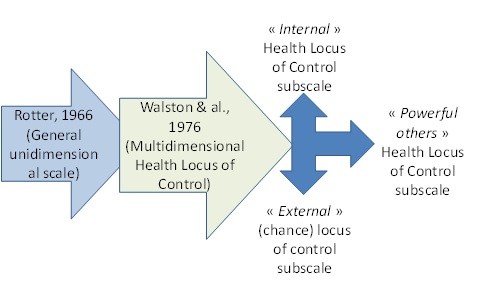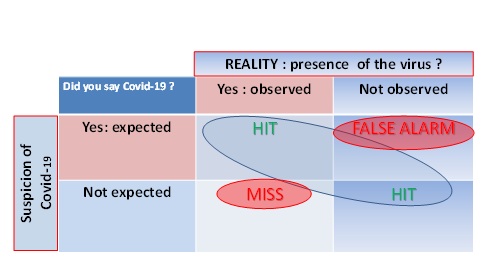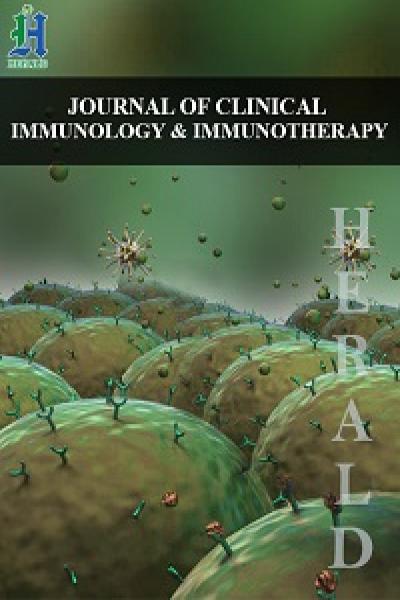
Response-Ability Facing Covid-19: A matter of Psyche, Behavior and Civism
*Corresponding Author(s):
Anne Frédérique NaviauxCollege Of Psychiatrists Of Ireland And Health Service Executive Hse Summerhill Community Mental Hea, Summerhill, Wexford, Y35 KC58, Ireland
Tel:+353 (0) 53 9123899,
Fax:+353 (0) 53 9155900
Email:annefrederique.naviaux@hse.ie
Keywords
Civism; Corona virus; Covid-19; Health locus control; Behavior; Signal detection theory; Pandemic
INTRODUCTION
The coronavirus is raising many questions and resulting in some steps being taken in some very different (and sometimes even contradictory) directions; this is observed at all levels: international, national, institutional, educational, economic, and includes that of the family, the couple and individually [1,2].
Since December 2019, the ongoing expansion of the Covid-19 (SARS-CoV-2) continues to create various socio-relational upheavals: organizational, financial, emotional but also medico-psychological. In this context, institutions will make choices depending on their roles (health care providers or not) and their management types.
Facing Covid-19, individuals’ reactions will vary according to their personality type and can take extreme forms: ranging from total denial (the “corona-skeptics”) to uncontrolled panic associated to behaviors typical of what used to be called “hypochondria” but is now referred to as “health anxiety”.
In this climate of uncertainty due do the pandemic, human disarray and cyberchondria can be expected as well as rumors spreading, conspiracy theories, constant feeling of being threatened and lacking security, and deviant behaviors of all kinds (discrimination, ignoring social distancing, assaults in shops, food hoarding, abuse of health care workers by confined people, theft, etc.) [3-5].
Knowing the current world shortage of screening material, protective masks and vaccine, the purpose of this paper is to identify the major civic behaviors in the population facing the pandemic, using the signal detection theory and the health locus of control concept.
While the present protection measures apply, public behavior, and therefore public psyche, is more important and far more determinant for the future than the virus itself.
Since January 27, 2020, Elsevier has implemented an information Centre (https://www.elsevier.com/connect/coronavirus-information-center) dedicated to the corona virus with daily updates, and multiple organizations such as the WHO are mapping the virus propagation as soon as the information reaches them.
This reminds us of the HIV era: shame, fear, embarrassment and worries about how to communicate information to the public and how it will impact on people.
MEDICO-PSYCHOLOGICAL ASPECTS
The concept of “Health Locus of control”
The notion of “health locus of control” first appeared in 1966, thanks to Julian Rotter and has been quoted 30,588 times to date [6]. It was formulated after observing recurrent patterns in how people perceive what is happening to them.
On one hand, Rotter noticed that some individuals consider that the “reinforcements” they receive do not result from their own actions but are depending on external factors (luck, fate, others: external locus of control). On the other hand, he observed that some other individuals believe they are directly responsible for what is happening to them; as directly resulting from their actions or behaviors (internal locus of control).
More specifically, this theory aims to predict which behavior an individual will adopt, knowing different reactions are possible. Subsequently multiple works have applied this concept to the health sector, and have identified 3 subtypes in terms of beliefs, thinking and behaviors: internal locus of control, external “powerful others” locus of control and external “chance” locus of control [7] (Figure 1).
 Figure 1: Specification of the concept of <<Locus of Control>> concept towards health.
Figure 1: Specification of the concept of <<Locus of Control>> concept towards health.
Today, a Pubmed search for “health locus of control” gives 11,798 results while including 482 in 2019 and already 134 in early April 2020, proving how it is successfully used in health matters.
How does it relate to Covid-19?
There are some obvious connections to Covid-19, even though they have not been proven yet as the virus has just recently occurred. So far no work in English has been published regarding the relationship between Covid-19 and the health locus of control.
On one side, as shown in multiple health studies, people who have a rather internal locus of control will self-observe (fever, cough, shortness of breath, sore throat, headaches), while individuals with an external locus of control, will consider that the course of the corona virus depends either on chance or on “the others”.
On the other side, prevention measures (frequent hand washing for at least 20 seconds, avoiding touching your face, coughing and sneezing in the crook of your elbow, no handshaking and no kissing), keeping things/places clean, avoiding contact with sick people, staying away from crowds, not traveling in infected zones, using hydro alcoholic gel when hand washing) will of course be better complied to by people with an internal locus of control who feel responsible (“response-able” or “able to provide a proper response” in order to protect their health).
Moreover, this concept applies to both general population and health care workers.
Knowing that professional exhaustion in health care workers significantly increases the amount of nosocomial infections in hospital, it multiplies exponentially the risks of propagation [8].
Knowing that locus of control, depression and immunity were proven to be associated to the natural killer cells activity: opting for an internal locus of control during the confinement, a period that generates both anxiety and depression, is not only salutary but also sanitary [9-12].
The theory of signal detection
Some individuals (health care worker or not) can underestimate the Covid-19 psychological risk, and therefore become “hypo-estimators” or “deniers” (Miss) (Figure 2).
 Figure 2: Signal Detections Theory Model.
Figure 2: Signal Detections Theory Model.
Others, anxious about their health, will become “hyper-estimators”, hyper-vigilant or even hypochondriac or cyber-chondriac (False alarm).
The theory of the signal detection was created to optimize radar operator’s efficiency in submarines during the second world war. It compares what is expected and what is observed [13,14].
On his radar screen in the submarine, the operator sees visual signals which can be either a “real” signal (an enemy submarine) or a “noise” (an artefact or a non-enemy submarine).
• The primary efficiency of the operator is not only to spot, report and torpedo the supposed enemy submarine, but rather to identify a non-enemy submarine as such and to prevent wasting a torpedo and alarming the crew.
• The second efficiency of the operator is to avoid two types of mistakes: reporting a submarine when there is none and not reporting a submarine when there is one. This can apply to the Covid-19 situation.
In this pandemic, we need to be mainly wary of “deniers or hypo-estimators” rather than fear the “false alarm”, besides the “hits” illustrated in Figure 2.
CONCLUSION
Regarding the corona virus, health care providers and the whole population should rather be hyper-vigilant than hypo-vigilant in order to protect their and others health while containing the epidemic. It is all about empirical falsification, as described by Karl Popper in 1934 in his book “the logic of scientific discovery” [15].
False alarm is preferable to omission. Civic-minded behaviors and an internal health locus of control are to be strongly encouraged.
REFERENCES
- Yao N, Wang SN, Lian JQ, Sun YT, Zhang GF, et al. (2020) Clinical characteristics and influencing factors of patients with novel corona virus pneumonia combined with liver injury in Shaanxi region. Zhonghua Gan Zang Bing Za Zhi 28: E003.
- Velavan TP, Meyer CG (2020) The COVID-19 epidemic. Trop Med Int Health 25: 278-280.
- Muse K, McManus F, Leung C, Meghreblian B, Williams JM (2012) Cyberchondriasis: Fact or fiction? A preliminary examination of the relationship between health anxiety and searching for health information on the Internet. J Anxiety Disord 26: 189-196.
- Starcevic V, Berle D (2013) Cyberchondria: Towards a better understanding of excessive health-related Internet use. Expert Rev Neurother 13: 205-213.
- Brooks SK, Webster RK, Smith LE, Woodland L, Wessely S, et al. (2020) The psychological impact of quarantine and how to reduce it: Rapid review of the evidence. Lancet 395: 912-920.
- Rotter JB (1966) Generalized expectancies for internal versus external control of reinforcement. Psychological Monographs: General and Applied 80: 1-28.
- Wallston BS, Wallston KA, Kaplan GD, Maides SA (1976) Development and validation of the health locus of control (HLC) scale. J Consult Clin Psychol 44: 580-585.
- Cimiotti JP, Aiken LH, Sloane DM, Wu ES (2012) Nurse staffing, burnout, and health care-associated infection. Am J Infect Control 40: 486-490.
- Burke A (2008) Could Anxiety, Hopelessness and Health Locus of Control Contribute to the Outcome of a Kidney Transplant? South African Journal of Psychology 38: 527-540.
- Reynaert C, Janne P, Bosly A, Staquet P, Zdanowicz N, et al. (1995) From health locus of control to immune control: Internal locus of control has a buffering effect on natural killer cell activity decrease in major depression. Acta Psychiatrica Scandinavica 92: 294-300.
- Brosschot JF, Benschop RJ, Godaert GL, Olff M, De Smet M, et al. (1994) Influence of life stress on immunological reactivity to mild psychological stress. Psychosomatic Medicine 56: 216-224.
- Ahmedani BK, Peterson EL, Wells KE, Rand CS, Williams LK (2013) Asthma medication adherence: The role of God and other health locus of control factors. Ann Allergy Asthma Immunol 110: 75-79.e72.
- Lynn SK, Barrett LF (2014) "Utilizing" signal detection theory. Psychological Science 25: 1663-1673.
- Martin J, Dubé C, Coovert MD (2018) Signal Detection Theory (SDT) Is Effective for Modeling User Behavior Toward Phishing and Spear-Phishing Attacks. Human factors 60: 1179-1191.
- https://philpapers.org/rec/KEUKPL.
Citation: Naviaux AF (2020) Response-Ability Facing Covid-19: A matter of Psyche, Behavior and Civism. J Clin Immunol Immunother 6: 021.
Copyright: © 2020 Anne Frédérique Naviaux, et al. This is an open-access article distributed under the terms of the Creative Commons Attribution License, which permits unrestricted use, distribution, and reproduction in any medium, provided the original author and source are credited.

